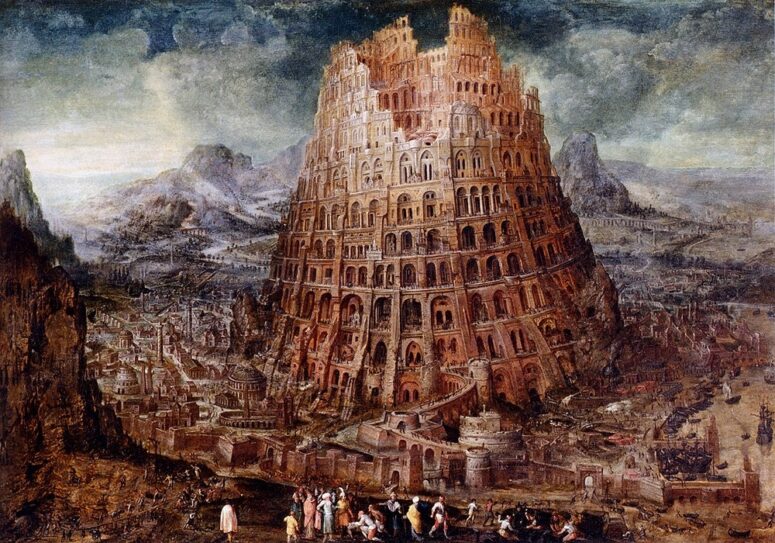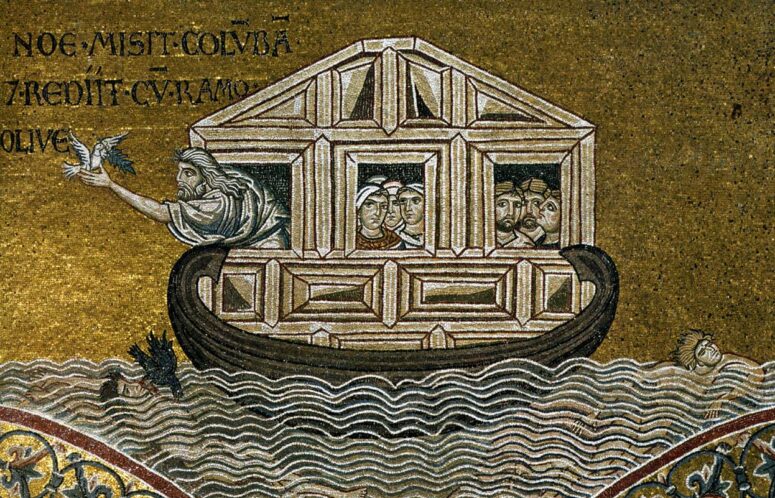
The Great Lent changes the regular course of a believer’s prayer life. Distinct Lenten prayer and worship direct our minds and hearts towards a deeper knowledge of God. It is a great opportunity for us to discover some previously unknown truths by reflecting on its texts.
Let us begin with the words of the hymns sung at the weekday matins during the great lent. Instead of the habitual “Stay with us, O Lord, Come to us O God” and the usual Alleluia, we hear the following verses:
Verse 1: Out of the night my spirit wakes at dawn unto You, O God, for Your commandments are light upon the earth.
Verse 2: Learn righteousness, those that dwell upon the earth.
Verse 3: Zeal shall lay hold upon an uninstructed people.
Verse 4: Add more evils upon them, O Lord; add more evils upon them that are glorious upon the earth.
Perhaps the most interesting and also the most intriguing verse is one that reads: Add more evils, O Lord, upon them that are glorious upon the earth. So why do we pray for the evils when we know that God is loving, kind and compassionate? Who are the glorious of this earth, and what sort of evils are we asking God to add upon them?
The words of these verses came to the Trebnik from the Book of Isaiah (Isaiah 26), so let us first look to the Scripture for our answers.
The glorious of this earth
In the Old Testament, the glorious of the world is a way to refer to the giants born in the mixed families of ‘sons of God’ (descendants of the righteous Seth) and “Daughters of man” (descendants of Cain). This interpretation of the biblical text is accepted by Ephraim the Syrian, Augustine Aurelius, and many other Church fathers.
In the Greek version of the Old Testament (the Septuagint), the term ‘glorious’ (Onomastoy in Greek) translate as people with a name who have acquired fame and a reputation among other people. It was this kind of fame to which the builders of the Tower of Babel aspired. They said, proudly, “Come, let us build ourselves a city, with a tower that reaches to the heavens, so that we may make a name for ourselves.” (Genesis 11, 4). They were people who loved human praise more than praise from God. 12: 43). Trying to bring them to their senses, the Lord says to them: “How can you believe since you accept glory from one another but do not seek the glory that comes from the only God?” (John 5, 44).

As we can see, the glorious of the earth are people who seek the glory of this world and completely disregard God. Pride eclipses their reason and does not let them understand that their lust for glory puts them to dishonour.
Yet the mystery of God’s love is such that He will seek salvation even for the most wicked, by bringing them to repent. Yet how can this be done? His prize of true glory in eternity goes to those who will humble themselves. But perhaps the only way to make the ‘glorious of the world’ humble themselves is by ‘adding the evils’, as said in the verse. But what kind of ‘evils’ are to be added?
The word ‘evil’ is used in the Scripture in two meanings.
Evil as disobeying God’s commandments
The first and most basic meaning of evil is an act of evil, an intention to commit it, slander and the like. “Whoever plots evil will be known as a schemer.” (Proverbs 24, 8).
In this sense, evil is a rebellion against God, His commandments, His absolute good and against our conscience, which God had planted in our hearts as our moral compasses. Such evil is a darkness devoid of light, love, or beauty. We all share the wish for the complete eradication of such evil. As we pray for the triumph of goodness.
Evil as a calamity
In the Scripture, evil also used in the meaning of misadventure, ill-being, i.e. as the opposite of well-being. It refers to the misfortunes, sorrows and deprivations that we all encounter in our lives from time to time.
In the biblical sense, evil understood in this way is sent to us by God, and is the natural consequence of the evil done by man. People turned away from God and fell into sin, and have faced all manner of calamity as a result.
Speaking through the prophet Jeremiah God terms as evil the calamities sent to His God-Chosen people in Babylonian captivity for the evil they had done by violating God’s commandments.
Man’s misfortunes are the consequence of sin. But they, too are subject to His Divine Providence. When disaster comes to a city, has not the LORD caused it? (Amos 3: 6).
To the weak man, all sorrows see like evil. But this is our subjective view, coming from the flesh. Often, as we look back at the sorrows that had befallen us before, we realise their usefulness to us. In the place of the Tower of Babel built in pride, we put up inside of us, with humility, the ladder of James, which we ascend on our way to God.
Calamities as salvation
People are very good at recognising evil as a calamity but are far worse at noticing a much bigger cause for grief – the evil within themselves that has lived there ever since they stepped away from God. How is it possible to save the evil-doer? Only by sincere salvation can we begin the change of heart that would eventually lead us to our salvation. For our repentance, God sends us great sorrows and misfortunes, like the Old Testament Great Flood.
To the first people who were mired in sin, the flood was an evil. God indeed punished them with the flood. But punishment does not mean rejection. The sinful people who were doomed to die in the waters of the flood were spared from eternal torment by God’s descent into Hades. They were saved because of the honest repentance of their sins in the face of their worldly sorrows. In this way, the evil of the flood saved the souls of many.

All of this is still relevant today. The Great Lent reveals the truth of our salvation, although many of us may find it bitter and unpalatable. At this time, the Church reminds us most poignantly of our wrongs. Our prayers are not something to which non-Christians can easily relate, because ask for the eternal salvation of our souls, which we see as our ultimate gift. Being lenient to the glorious of the world, on the other hand, can bring us to eternal death.
The Venerable Paisios of Mount Athos explained the meaning of this Lenten verse about evil in the following way: “Someone asked me, ‘Why do we sing during the Great Forty Days, ‘Add more evils, O Lord, upon them that are glorious upon the earth. Does not it sound like a curse?’ I answered him. ‘When hordes of barbarians are attacking some people for no apparent reason desiring to exterminate them, and the people pray for evil to fall on them – for their chariots to break, for their horses to fall and for something to stand in their way – are they praying for a good thing or a bad thing? The text of the Holy Scripture means exactly this – that these people encounter some hindrance in their way. It is not a curse.’
What is meant by the call to ‘add evil unto them’ is not some evil action from above, and not the multiplication of human sins, but God’s providential will for the healing of proud and embittered souls. We ask for the same when we say in our prayer: “Lord, keeper all lives, save this man.” The Lord knows it all about all things and people, and He alone knows how we can be saved. Some can be saved by illness, others by dismissal from their job, still others by sending humiliation in place of vainglory.
In this context, it may be appropriate to recall the parable of a fig tree. The tree had not brought any fruit for three years, and its owner was beginning to think about cutting it down. But the wise man who took care of the vineyard replied, ‘Sir, leave it alone for one more year, and I’ll dig around it and fertilize it. (Luke 13: 6-9). The Lord acts on us in exactly the same way when we stop bringing fruit — He fertilises us. Most often, we do not like it, but it makes our heart humble and bear fruit.
Finally, let us underline that the identity of the glorious of this world is irrelevant. As we pray, there is no need to give any names. The Lord sees through the heart of every man and woman and cares for their salvation. In the eyes of the Lord, a humble beggar is worse than a proud rich man. It is better to be poor in worldly riches, but rich in the spirit. Likewise, we are much better off without worldly fame if we seek the grace of the Holy Spirit and eternal glory.
Prepared by Anastasia Parkhomchik
Sourced from http://pravoslavie.ru/129806.html





Beloved Editor:
Syntax error: “Often, as we look back at the sorrows that had befallen us before,”
could read:
Often, as we looked back at the sorrows that had befallen us before
or,
Often, as we look back at the sorrows that have befallen us before.
If you make corrections, feel free to delete my comments.
Beloved Editor:
“Only by sincere salvation can we begin the change of heart that would eventually lead us to our salvation.”
I’m sure you mean: “Only by sincere repentance….”
“The sinful people who were doomed to die in the waters of the flood were spared from eternal torment by God’s descent into Hades. They were saved because of the honest repentance of their sins in the face of their worldly sorrows. In this way, the evil of the flood saved the souls of many.”
Is the above a personal opinion? Do you have a reference from a Holy Father or Mother to justify this comment? This seems presumptuous to me, but I am not widely read. However, I question whether we know or not that the people who died in the flood repented before they died. The church teaches us that there is no more opportunity for repentance after death. “Today is the day of salvation.” 2 Corinthians 6:2. So how would anyone know whether the people who died in the flood were saved?